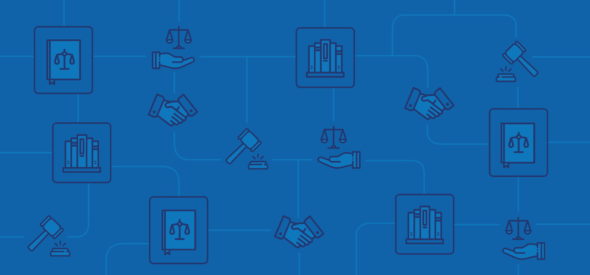“When giants change the rules.” Regional experts discuss WhatsApp case in webinar, with great attendance
On June 23, the Civil Society Forum (FSC) of the Ibero-American Data Protection Network (RIPD) held the webinar “When giants change the rules. Considerations over the WhatsApp case”, organized by the Association for Civil Rights (ADC) and the Instituto Brasileiro de Defesa do Consumidor (Brazilian Consumer Defense Institute – IDEC). The purpose was to analyze the changes in Whatsapp’s terms of use and privacy policy, and the different countries’ capacity of reaction within the region. With more than 140 people registered, the event was moderated by Valeria Milanes, ADC executive director: “When one of the technological giants announces a change in its Terms and Conditions and Privacy Policies, we are faced with a decision that transcends the boundaries of what is merely business,” she said.
The panel was made up of Paula Vargas (Head of Privacy Policy and Public Policy for Latin America at Meta), Juliana Oms (researcher in Telecommunications and Digital Rights at IDEC – Brazilian Consumer Defense Institute), María Isabel Navarro Alonso (official of the Spanish Data Protection Agency), Johanna Faliero, (PhD in Personal Data Protection from the University of Buenos Aires Law School), Waldemar Gonçalves Ortunho (Executive Director of the National Data Protection Authority of Brazil), Lucía Camacho Gutiérrez (Transparency, Technology and HH. RR. Line researcher at DeJusticia, Colombia) and Adrián Ganino (Head of the Argentinian National Consumer Defense and Arbitration Directorate).
Two main aspects were considered during the meeting. Firstly, whether the countries of the region have the capacity to act, react and make decisions in the event of a change in the Terms and Conditions and/or Privacy Policies by one of the technological giants. And, secondly, what initiatives can be taken by the different actors of society given this situation.
Paula Vargas, from Meta, said: “We have a responsibility to protect people’s privacy by giving them the controls so that, on one hand, they can handle their data, and on the other, we show transparency in our practices and provide them with the information they need to make decisions”.
In turn, researcher Juliana Oms made a brief assessment of the measures taken by Brazil’s National Data Protection Authority (ANPD) in the WhatsApp case and detailed some of the difficulties that had to be faced. “I hope there is no hurry to close the investigations,” she pointed out, “considering that we have an open procedure on the issue.”
Next, María Isabel Navarro Alonso, from the Spanish Data Protection Agency, presented the WhatsApp case considering the responses given in her country. She explained that the process ended with a sanction to the company and an order to bring the Privacy Policies in line with the General Data Protection Regulation (GDPR).
Specialist Johanna Faliero followed by tracing an outline of the situation in Argentina regarding these changes and shared her experience of the claim she duly filed before the National Consumer Defense and Arbitration Directorate. “The issue being discussed here is worrying because, in general, the new privacy and data management terms and conditions, in which the information of the user is at stake, are established in the manner of an aggressive commercial practice, including profit-maximizing clauses that can be characterized as abusive”, summarized the attorney.
The Brazilian National Data Protection Authority, Waldemar Gonçalves Ortunho, for his part, described the WhatsApp case as “dramatic”, and gave an account of the actions taken by the agency.
Lucia Camacho Gutierrez, from DeJusticia, mentioned the resolution against WhatsApp made by the Colombian data protection authority, the Superintendence of Industry and Commerce, which included an extensive questionnaire asking if the changes complied with the data protection regulations. However, she considered that “it had a significant impact on the media but little in-depth analysis and debate of the issue.”
Adrián Ganino, director of the Argentinian National Consumer Defense and Arbitration Directorate, highlighted the power of civil society and its fundamental role in defending the rights at stake in issues such as the ones discussed. He also gave a brief review of the norms regarding user and consumer data protection, and expressed that “the liaison between the different actors that make up the public sector is essential”.
As a closing of the webinar, the speakers referred to the lessons drawn from Meta’s action and the challenges it poses, the reaction of Brazilian users and consumers to the investigations that will soon be carried out in that country, and, among other aspects, the role that the sanctions being imposed have in raising the awareness of citizens and the business sector.
Did you miss the webinar? You can watch it in full by clicking here.
The Civil Society Forum is a group of non-profit civil society organizations that advocate for human rights and the protection of personal data throughout Ibero-America. Its role is to serve as a liaison between civil society and the Ibero-American Data Protection Network (RIPD) to contribute with knowledge, a human rights perspective, and a civil society approach.

